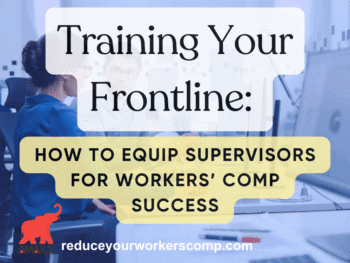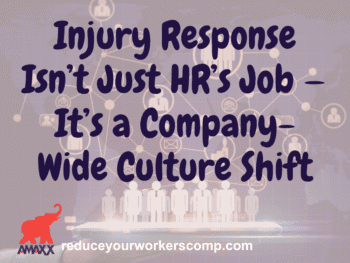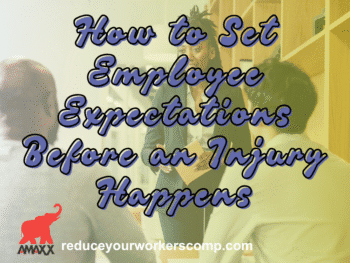So you want to pursue a career in the insurance industry? It is a good choice; the insurance world is essentially recession-proof and in times of poor economic performance, the insurance industry is booming! Or, maybe you are looking for a promotion or a little more security in the job you have.
When you think about it, everyone needs insurance, whether it is personal lines of insurance (auto, house, boat, etc.) or commercial lines (employer, work comp, premises, liability, etc.) everyone needs an insurance policy of some sort to protect their investments or their businesses.(WCxKit)
Requirements for getting into the claims adjusting field vary by carrier, but below we discuss seven items that are standard requirements. Already working in claims? Try to check off as many of these attributes as you can.
7 Must-Haves to Get (or Keep) a Job in the Insurance Industry
1. You usually need a college degree:
There was a time that a high school diploma would get you a job in claims. But times have changed, and to be considered for a career in claims you must have a bachelor’s degree in an insurance-related field, such as accounting, finance, economics, law enforcement, or human resources. If you can manage going back to school (on-line degrees are becoming easier and more legitimate), consider bumping up your education.
That is not to say if you have a degree in mathematics that you cannot get in, but if your studies included one of the disciplines listed above you have a better chance. Although some would argue with me, more often than not, carriers want someone who has zero experience in the industry. This way, people do not bring in bad habits learned at other carriers. Every carrier has a specific way of handling claims, and if they can train you from the ground up, it is seen as an asset, depending on the job position.
2. You have to have a good credit score:
Since you would be a fiduciary agent for your new employer, you need to carry a decent credit score. This will show your employer you take care of financial obligations in your personal life. Remember, you may be responsible for tens of thousands of dollars that are not yours. You have to represent the company at all times, whether you are working in the office or you are down at the courthouse trying to negotiate a file toward settlement.
The carrier will view your credit score as the way you handle your own financial obligations, and if you can show that you are responsible in your personal life, chances are you will act the same with their money as well. Already have a job? Remember your credit report may be just a Google search away from your boss’s fingertips – stay as clean as you can.
3. It helps to have law enforcement background:
Having a background as a police officer or some other work experience in law enforcement will help put you ahead of other applicants. These fields carry a certain degree of responsibility and investigational skills that transfer over to the insurance field.
Since you will be investigating every claim for compensability, being very experienced at doing detailed investigations is a great asset. Every claim you handle will need some degree of investigation. It also means you complete a thorough and detailed investigation. Investigation is probably the most important task because results deem if a claim will be paid. A particular claim may start as nothing major, but every claim has a chance to morph into a monster potentially worth hundreds of thousands of dollars. Being comfortable doing detailed investigations is something every carrier is looking for.
4. It helps to have a legal background:
Obviously work in claims carries the responsibility to read and interpret the legal system, sometimes in many jurisdictions at the same time. Having a law degree and/or prior work involving the legal system is another great asset you can have that will carry into the insurance field. Every claim will need to be deemed compensable or not, and the basis of your decision will depend on your investigation and how the injury or damage relates to legal statutes within the jurisdiction you are handling.
5. You should be organized and detailed:
Being a claims adjuster requires you to handle several issues at the same time. Every day you would have a list of things to accomplish on certain files. Additionally, you have to accomplish tasks in order of importance. I do not see many adjusters in the business who are not organized or have some system in place to handle files. A typical adjuster has about 150 files, sometimes more, and all of those files are at different stages in the claim. If you are organized and detailed, you will survive. If you are unorganized and do not have a system in place, you will drown in a sea of paperwork, phone calls, and emails.
6. You must pursue an insurance or adjuster’s license
All carriers require you to either be licensed or to secure a claims adjuster license within the first 90 days of hire. This is a comprehensive, state-administered, pass-or-fail test. The test can be quite daunting; especially to those with no experience, but with some studying and hard work it is achievable. Carriers provide you with study materials, and will give you a few tries. Securing your license is a must. If you do not already have one you should plan on getting one as soon as possible as part of your new-hire process.
7. You have to know or pass a HIPAA compliance test
HIPPA stands for the “Health Insurance Portability and Accountability Act of 1996.” Since you will be dealing with medical records, social security numbers, and other personal identifiers, every carrier requires you to pass a HIPPA compliance test. You have to be able to be trusted with your claimants’ personal information. Handling and disposal of those records is very important. Carriers can face fines and penalties if they are caught violating the HIPPA terms, and they are constantly educating you in proper ways to handle personal information. You should be aware of HIPAA, and the overall guidelines contained within before starting work with a carrier.(WCxKit)
In conclusion, a career in the insurance world is very rewarding, and job security within this industry is like no other. With some hard work, organization, and studying there is no doubt you will succeed.
Author Rebecca Shafer, JD, President of Amaxx Risks Solutions, Inc. is a national expert in the field of workers compensation. She is a writer, speaker, and website publisher. Her expertise is working with employers to reduce workers compensation costs, and her clients include airlines, healthcare, printing, publishing, pharmaceuticals, retail, hospitality, and manufacturing. See www.LowerWC.com for more information. Contact: RShafer@ReduceYourWorkersComp.com.
Our WC Book: http://www.wcmanual.com
WORK COMP CALCULATOR: http://www.LowerWC.com/calculator.php
WORK COMP CALCULATOR: http://www.LowerWC.com/calculator.php
SUBSCRIBE: Workers Comp Resource Center Newsletter
Do not use this information without independent verification. All state laws vary. You should consult with your insurance broker or agent about workers comp issues.
©2011 Amaxx Risk Solutions, Inc. All rights reserved under International Copyright Law. If you would like permission to reprint this material, contact Info@ReduceYourWorkersComp.com.




























